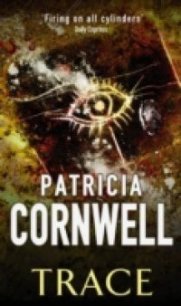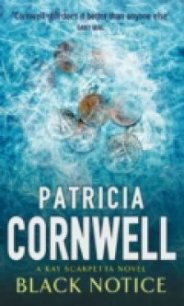All That Remains - Cornwell Patricia (читать хорошую книгу полностью TXT) 📗
I held my hands in front of me, as if they were bound at the wrists. Had Deborah locked her fingers together in a double fist and swung, and had the killer's reflex been to defensively raise his hands, in one of which he was holding the knife he had just used to murder Fred, then the hack to Deborah's left index finger made sense. Deborah ran like hell, and the killer, knocked off guard, shot her in the back.
Was I right? I could not know. But the scenario continued to play in my mind without a hitch. What didn't fit were several presuppositions. If Deborah's death was a paid hit carried out by a professional or the work of a psychopathic federal agent who had selected her in advance because she was Pat Harvey's daughter, then did this individual not know that Deborah was an Olympic-caliber gymnast? Would he not have considered that she would be unusually quick and agile and have incorporated this into his premeditations? Would he have shot her iii the back? Was the manner in which she was killed consistent with the cold, calculating profile of a professional killer? In the back.
When Hilda Ozimek had studied the photographs of the dead teenagers, she continued to pick up fear. Obviously, the victims had felt fear. But it had never occurred to me before this moment that the killer may have felt fear, too. Shooting someone in the back is cowardly. When Deborah resisted her assailant, he was unnerved. He lost control. The more I thought about it, the more I was convinced that Wesley and perhaps everybody else was wrong about this character. To hunt bound, barefoot teenagers in the woods after dark, when you have weapons, are familiar with the terrain, and are perhaps equipped with a night vision scope or goggles would be like shooting fish in a barrel. It's cheating. It's too damn easy. It did not strike me as the modus operandi I would expect were the killer an expert who thrived on taking risks.
And then there was the matter of his weapons.
If I were a CIA officer hunting human prey, what would I use? An Uzi? Maybe. More likely I would pick a nine-millimeter pistol, something that would do the job, nothing more, nothing less. I would use commonplace cartridges, something unremarkable. Everyday hollowpoints, for example. What I would not use was anything unusual like Exploder bullets or Hydra-Shoks. The ammunition. Think hard, Kay! I could not remember the last time I had recovered Hydra-Shok bullets from a body.
The ammunition was originally designed with law enforcement officers in mind, the bullets having greater expansion upon impact than any other round fired from a two-inch barrel. When the lead projectile with its hollowpoint construction and distinctive raised central post enters the body, hydrostatic pressure forces the peripheral rim to flare like the petals of a flower. There's very little recoil, making it easier for one to fire repeat shots. The bullets rarely exit the body; the disruption to soft tissue and organs is devastating.
This killer was into specialized ammunition. He, no doubt, had sighted his gun by his cartridges of choice. To select one of the most lethal types of ammunition probably gave him confidence, made him feel powerful and important. He might even be superstitious about it.
I picked up the phone and told Linda what I needed.
"Come on up," she said.
When I walked into the firearms lab, she was seated before a computer terminal.
"No cases so far this year, except for Deborah Harvey, of course," she said, moving the cursor down the screen. "One for last year. One the year before that. Nothing else for Federal. But I did find two cases involving Scorpions."
"Scorpions?"
I puzzled, leaning over her shoulder.
She explained, "An earlier version. Ten years before 253 Federal bought the patent, Hydra-Shok Corporation was manufacturing basically the same cartridges. Specifically, Scorpion thirty-eight's and Copperhead three-fifty sevens."
She hit several keys, printing out what she had found. "Eight years ago, we got in one case involving Scorpion thirty-eight's. But it wasn't human."
"I beg your pardon?"
I asked, baffled.
"Appears this victim was of the canine variety. A dog. Shot, let's see… three times."
"Was the shooting of the dog connected with some other case? A suicide, homicide, burglary?"
"Can't tell from what I've got here," Linda replied apologetically. "All I've got is that three Scorpion bullets were recovered from the dead dog. Never matched up with anything. I guess the case was never solved."
She tore off the printout and handed it to me.
The OCME, on rare occasion, did perform autopsies on animals. Deer shot out of season were sometimes sent in by game wardens, and if someone's pet was shot during the commission of a crime or if the pet was found dead along with its owners, we took a look, recovered bullets or tested for drugs. But we did not issue death certificates or autopsy reports for animals. It wasn't likely I was going to find anything on file for this dog shot eight years ago.
I rang up Marino and filled him in.
"You gotta be kidding," he said.
"Can you track it down without making a commotion? I don't want this raising any antennas. It may be nothing, but the jurisdiction is West Point, and that's rather interesting. The bodies of the second couple were found in West Point."
"Yeah, maybe. I'll see what I can do," he said, and he didn't sound thrilled about it. The next morning Marino appeared while I was finishing work on a fourteen-year-old boy thrown out of the back of a pickup truck the afternoon before.
"That ain't something you got on, I hope."
Marino moved closer to the table and sniffing.
"He had a bottle of aftershave in a pocket of his pants. It broke when he hit the pavement, and that's what you're smelling."
I nodded at clothing on a nearby gurney.
"Brut?"
He sniffed again.
"I believe so," I replied absently.
"Doris used to buy me Brut. One year she got me Obsession, if you can believe that."
"What did you find out?"
I continued to work.
"The dog's name was Dammit, and I swear that's the truth," Marino said. "Belonged to some old geezer in West Point, a Mr. Joyce."
"Did you find out why the dog came into this office?"
"No connection to any other cases. A favor, I think."
"The state veterinarian must have been on vacation," I replied, for this had happened before.
On the other side of my building was the Department of Animal Health, complete with a morgue where examinations were conducted on animals. Normally, the carcasses went to the state veterinarian. But there were exceptions. When asked, the forensic pathologists indulged the cops and pitched in when the veterinarian was unavailable. During my career I had autopsied tortured dogs, mutilated cats, a sexually assaulted mare, and a poisoned chicken left in a judge's mailbox. People were just as cruel to animals as they were to each other.
"Mr. Joyce don't got a phone, but a contact of mine says he's still in the same crib," Marino said. "Thought I might run-over there, check out his story. You want to come along?"
I snapped in a new scalpel blade as I thought about my cluttered desk, the cases awaiting my dictation, the telephone calls I had yet to return and the others I needed to initiate.
"Might as well," I said hopelessly.
He hesitated, as if waiting for something.
When I looked up at him, I noticed. Marino had gotten his hair cut. He was wearing khaki trousers held up by suspenders and a tweed jacket that looked brand new. His tie was clean, so was his pale yellow shirt. Even his shoes were shined.
"You look downright handsome," I said like a proud mother.
"Yeah."
He grinned, his face turning red. "Rose whistled at me when I was getting on the elevator. It was kinda funny. Hadn't had a woman whistle at me in years, except Sugar, and Sugar don't exactly count."


